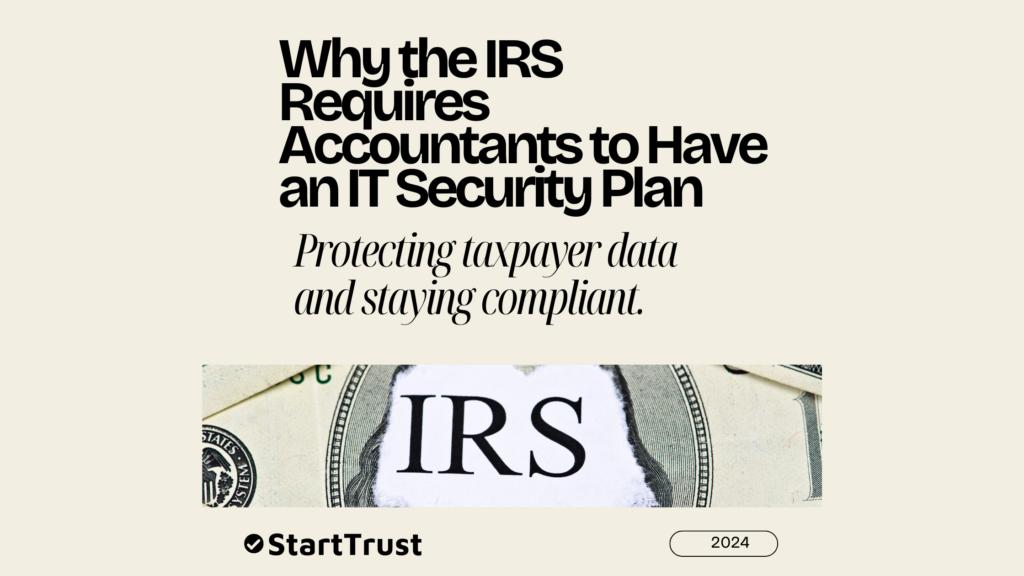
Accountants and tax professionals handle a wealth of sensitive information, including Social Security numbers, financial records, and other personal details. With this responsibility comes the need for robust security measures to protect such data from cyber threats. In response, the IRS mandates that accountants have an IT security plan to safeguard taxpayer information and ensure compliance with federal regulations.
Here’s why this requirement is essential for accounting firms:
1. Protection of Sensitive Data
Accountants are prime targets for cybercriminals due to the type of information they handle. Personal and financial data, like Social Security numbers and banking information, can be used for identity theft and fraud if it falls into the wrong hands. An IT security plan is crucial for protecting this sensitive data from unauthorized access, breaches, and other cyberattacks.
By implementing measures like encryption, firewalls, and access controls, accountants can ensure that client information remains confidential and secure.
2. Compliance with Federal Regulations
The IRS requires tax professionals to comply with a range of federal regulations, including the Gramm-Leach-Bliley Act (GLBA) and IRS Publication 4557, both of which provide guidelines for safeguarding taxpayer data. These laws outline the need for privacy and data security measures to be in place, ensuring that firms take proactive steps to prevent data breaches.
Without adherence to these regulations, accounting firms risk facing penalties, fines, and reputational damage.
3. Risk Management
An effective IT security plan allows accountants to identify potential vulnerabilities in their systems before they become a problem. By conducting regular risk assessments, firms can spot weaknesses in their infrastructure and take action to mitigate them. This may include deploying stronger authentication methods, securing network access, or regularly backing up important data.
Proactive risk management not only protects client information but also reduces the likelihood of costly and damaging data breaches.
4. Maintaining Trust and Reputation
A single data breach can have severe consequences for an accounting firm’s reputation. Trust is a cornerstone of the client-accountant relationship, and any compromise of sensitive information can erode that trust. In today’s digital landscape, clients expect their data to be securely handled, and failure to do so can result in the loss of business and credibility.
By implementing and maintaining a comprehensive IT security plan, accountants can demonstrate their commitment to safeguarding their clients’ information, which helps maintain trust and professional reputation.
5. IRS Requirements
One of the core requirements from the IRS is that tax professionals must create a written data security plan under the Federal Trade Commission’s (FTC) Safeguards Rule. This plan should be tailored to the firm’s size, complexity, and the nature of its services. It should outline how the firm will protect sensitive data, including details on access controls, data encryption, and other security protocols.
By complying with these requirements, accounting firms can help reduce the risk of data breaches and ensure that they’re doing their part to protect taxpayer information.
Conclusion
The IRS’s mandate for accountants to have an IT security plan is about more than just regulatory compliance—it’s about protecting sensitive data, managing risk, and maintaining client trust. As cyber threats continue to evolve, it’s crucial that accountants stay vigilant and implement comprehensive security strategies that protect both their clients and their firms.
By staying compliant and proactive, accounting professionals can ensure that they’re fully equipped to handle the challenges of today’s digital world.